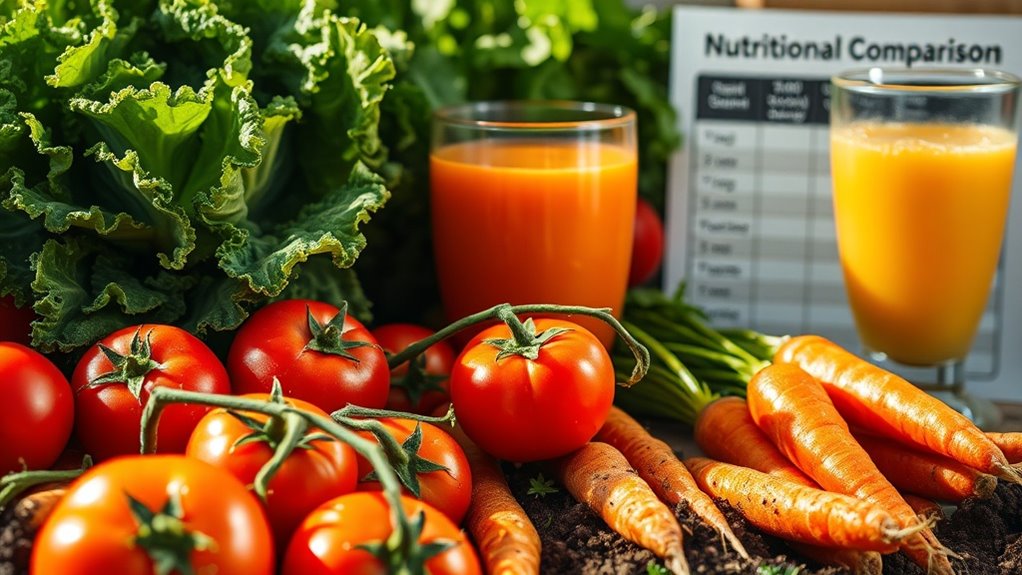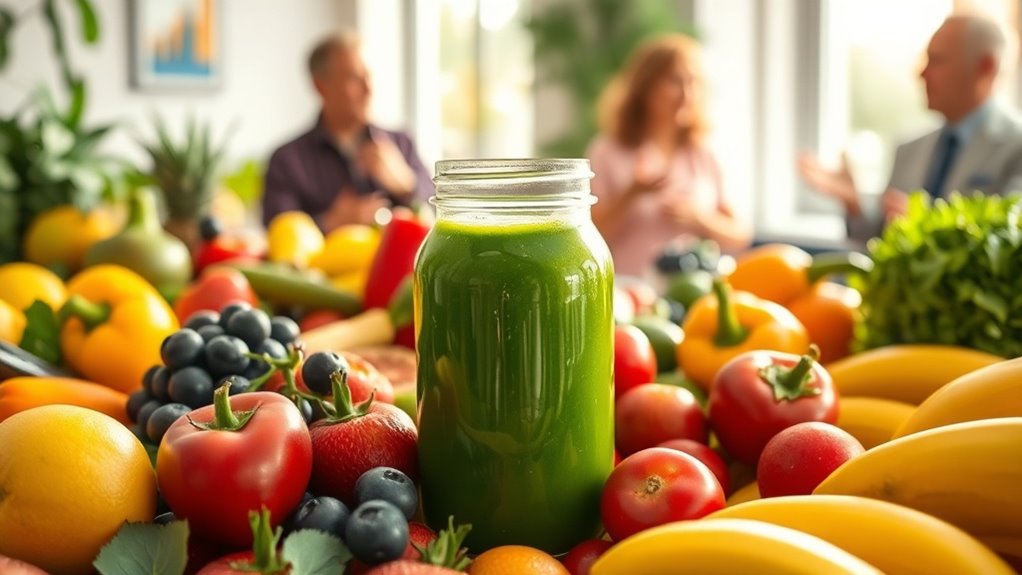Are Organic Foods Really Better. What Science Says
Are organic foods truly better for your health and the environment? While some evidence suggests organic produce may offer certain nutritional advantages, the differences are often minimal. On the other hand, the farming practices associated with organic agriculture can lead to significant environmental benefits. As you explore this complex topic, you’ll encounter varying opinions and data that may challenge your assumptions about organic versus conventional foods.
Nutritional Differences Between Organic and Conventional Foods
When comparing the nutritional profiles of organic and conventional foods, you might wonder if the touted benefits of organic produce are backed by solid evidence.
Research indicates limited differences in key nutrients. Some organic food facts suggest higher antioxidant levels, but findings often vary.
Environmental Benefits of Organic Farming Practices
Organic farming practices offer significant environmental benefits that extend beyond mere agricultural techniques.
When you choose organic, you support:
- Enhanced biodiversity
- Improved soil health
- Reduced water pollution
- Lower greenhouse gas emissions
- Sustainable pest management
These practices not only protect ecosystems but also contribute to a healthier planet, showcasing the potential of organic farming to address environmental challenges effectively.
Health Risks Associated With Pesticides and Chemicals
While organic farming practices enhance environmental health, they also highlight the stark contrast to conventional methods that often rely on synthetic pesticides and chemicals.
These chemicals can lead to health risks, including potential endocrine disruption and increased cancer risks. Frequent exposure might result in neurological issues and developmental problems, particularly among children.
Balancing these risks with agricultural productivity remains essential for informed consumer choices.
Economic Considerations of Organic vs. Conventional Foods
As consumers increasingly prioritize health and sustainability, the economic landscape surrounding organic and conventional foods reveals significant disparities.
Consider the following points:
- Organic foods typically have higher production costs.
- Price premiums may deter some buyers.
- Conventional foods often benefit from economies of scale.
- Market demand for organic continues to rise.
- Subsidies can favor conventional farming practices.
Understanding these factors helps clarify your purchasing decisions.
Consumer Perception and Marketing of Organic Products
How do consumers perceive organic products in an ever-evolving marketplace? Many view them as healthier, associating organic with quality and environmental benefits. Marketing strategies often emphasize these traits, shaping consumer preferences. Research shows that consumer decisions are influenced by perceived value and trust in labeling, leading to increased demand. However, skepticism remains regarding price differences and potential greenwashing in marketing tactics. Additionally, many consumers are increasingly aware of the impact of pesticides on health, further driving the desire for organic options.




